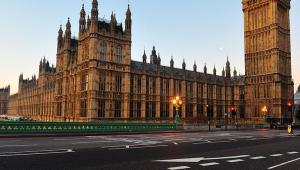By Mark Smulian | 6 September 2012
Senior MPs have criticised the government’s ‘dismissive’ response to calls for reform of public appointments.
The Commons liaison select committee, which comprises the chairs of all 33 Commons select committees, said last year that Parliament should be given a greater say in public appointments by ministers.Select committees have held pre-appointment hearings since 2007 for senior public posts, but ministers are not obliged to act on negative recommendations.
The liaison committee proposed last September that appointments should be divided into three categories, with a system of vetoes. The government rejected this in June, dismissing the ideas as ‘of interest’ only.
Liaison committee chair Sir Alan Beith said this was ‘a surprisingly poor response by the government to some straightforward proposals to improve the existing process’.
He added: ‘The government says it is committed to increasing accountability in the public appointments process, but this dismissive and disengaged response makes this hard to believe.’
Under the committee’s proposals, Parliament and ministers should jointly appoint post holders who exercise major constitutional functions, regulate ministers’ activities or protect citizens from government. This would likely involve around 12 posts. A Commons vote would also be needed before anyone could be dismissed from these jobs.
For posts in an intermediate category, select committees should be involved in the job specification and recruitment process from the start. Ministers would have to justify any rejection of a select committee’s recommendation, with any disagreements taken to a Commons vote.
A third category would comprise less prominent posts where committees could choose whether or not to scrutinise appointments.
Selection of ambassadors and high commissioners from outside the career diplomatic service should also be scrutinised, the committee said.
Cabinet Office spokesman said: 'The government has always been clear that we are committed to transparency and accountability in the public appointments process.'





















